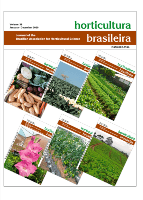
Horticultura Brasileira
Scope & Guideline
Fostering collaboration for a greener tomorrow.
Introduction
Aims and Scopes
- Crop Breeding and Genotype Evaluation:
The journal publishes research on the performance, adaptability, and stability of different plant genotypes, focusing on their agronomic traits and suitability for various environmental conditions. - Nutrient Management and Soil Fertility:
Studies on the effects of various nutrient sources, fertilization strategies, and soil management techniques aimed at optimizing crop yield and quality are a core focus. - Water Management and Irrigation Strategies:
Research on irrigation techniques, including the use of brackish water and water use efficiency, plays a significant role in the journal, addressing water scarcity issues in agriculture. - Sustainable Practices and Organic Farming:
The journal emphasizes sustainable horticultural practices, including organic fertilization, green manure, and agroecological approaches to crop production. - Post-Harvest Technology and Quality Assessment:
Research on post-harvest handling, storage, and quality assessment of horticultural products is featured, highlighting the importance of maintaining quality from farm to market.
Trending and Emerging
- Biostimulants and Sustainable Inputs:
Research on the use of biostimulants and alternative nutrient sources is trending, highlighting the move towards sustainable agriculture and enhancing crop resilience. - Precision Agriculture Technologies:
There is a growing interest in precision agriculture, including the use of advanced technologies for crop monitoring and management, which is reflected in recent publications. - Climate Resilience and Adaptation Strategies:
Emerging studies are increasingly focusing on how various crops can adapt to climate change, with research on drought tolerance and stress resilience becoming more prominent. - Nutraceuticals and Functional Foods:
The exploration of bioactive compounds in vegetables and their health benefits is gaining attention, aligning with global trends towards health and nutrition. - Intercropping and Crop Diversification:
Research on intercropping systems and diversification strategies is on the rise, reflecting a broader interest in sustainable cropping systems and maximizing land use efficiency.
Declining or Waning
- Traditional Pest Control Methods:
Research focusing on conventional chemical pest management strategies has decreased, possibly due to a growing emphasis on integrated pest management and organic approaches. - General Horticultural Practices:
There seems to be a waning interest in broad studies on general horticultural practices, as more specific and innovative topics are gaining traction. - Studies on Ornamental Plants:
Fewer publications are addressing ornamental horticulture, indicating a shift in focus towards more economically significant vegetable crops and food production.
Similar Journals
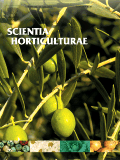
SCIENTIA HORTICULTURAE
Cultivating knowledge, nurturing innovation.SCIENTIA HORTICULTURAE, published by Elsevier, is a leading journal in the field of horticulture, with an impressive impact factor reflected in its Q1 ranking (2023) and position as #6 out of 115 in the Scopus category for Agricultural and Biological Sciences. This journal plays a pivotal role in disseminating cutting-edge research and innovations in horticultural science and technology, contributing significantly to the understanding of plant cultivation, production, and management. With continuous publication since 1973, SCIENTIA HORTICULTURAE offers an essential platform for researchers, professionals, and students alike who are focused on the advancement of sustainable horticultural practices. Although it is not an open-access journal, it provides a wealth of data and findings that can be accessed through institutions and libraries. Located in the Netherlands at RADARWEG 29, 1043 NX AMSTERDAM, this journal remains an invaluable asset to the global horticultural community throughout its converged years, fostering collaboration and elevating standards in horticulture research.
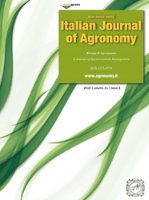
Italian Journal of Agronomy
Pioneering research that cultivates agricultural excellence.The Italian Journal of Agronomy is a prestigious, peer-reviewed outlet dedicated to advancing research and scholarship in the field of agronomy and crop science. Published by PAGEPRESS PUBL in Italy, this journal is committed to providing a platform for the dissemination of high-quality research since achieving its Open Access status in 2006. With an ISSN of 1125-4718 and an E-ISSN of 2039-6805, it is recognized for its contribution to the scientific community, boasting a commendable Q2 category ranking in Agronomy and Crop Science as of 2023. The journal's impressive Scopus ranking places it in the 75th percentile within General Agricultural and Biological Sciences and the 69th percentile in Agronomy and Crop Science, reflecting its significant impact and relevance. Covering a wide range of topics relevant to agriculture, from sustainability practices to innovative farming techniques, the Italian Journal of Agronomy serves as an essential resource for researchers, professionals, and students seeking to enrich their knowledge and contribute to the advancement of the agricultural sciences.

Agrociencia Uruguay
Transforming Agricultural Challenges into OpportunitiesAgrociencia Uruguay, published by the Universidad de la República, Facultad de Agronomía, serves as a vital academic platform in the field of agricultural and biological sciences. Since its inception in 1997, this Open Access journal has fostered the dissemination of innovative research findings, promoting collaboration among researchers, professionals, and students interested in agronomy, crop science, soil science, and plant science. Operating from Montevideo, Uruguay, the journal strives to address contemporary challenges in agriculture through the publication of high-quality, peer-reviewed articles. Despite its relatively modest impact factors and rankings in Scopus, positioned in the lower percentiles, Agrociencia Uruguay remains crucial for advancing local and regional agricultural knowledge, thus contributing to global food security and sustainable practices. Researchers are encouraged to engage with the journal's content to further enhance their understanding and explore the rich agricultural landscape of Uruguay and beyond.

Agronomy-Basel
Pioneering Insights for a Greener TomorrowAgronomy-Basel is a leading international journal dedicated to advancing the field of agronomy and crop science, published by the respected MDPI. Since its inception in 2011, this open-access journal has provided a vital platform for the dissemination of high-quality research, featuring innovative studies and reviews that contribute to the understanding of agricultural practices and crop management. With an impressive impact factor and ranked in the Q1 quartile of its category for 2023, Agronomy-Basel has established itself as a premier resource in the realm of Agricultural and Biological Sciences, achieving a commendable rank of #62 out of 406 in its field, placing it in the 84th percentile. The journal targets researchers, professionals, and students who are dedicated to enhancing agricultural sustainability and productivity. Located in Basel, Switzerland, the journal's commitment to open access empowers global accessibility to flourishing agricultural advancements, thus fostering collaboration and innovation across the globe.
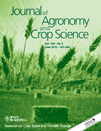
JOURNAL OF AGRONOMY AND CROP SCIENCE
Cultivating knowledge for tomorrow's agricultural challenges.JOURNAL OF AGRONOMY AND CROP SCIENCE, published by Wiley, stands as a leading platform in the fields of agronomy and crop science, reflecting its commitment to advancing knowledge through rigorous research. With an impressive H-index that signifies its scholarly impact, this journal has consistently maintained a prestigious Q1 ranking in both Agronomy and Crop Science, and Plant Science as of 2023. With a robust ranking of #46/516 in Plant Science and #39/406 in Agronomy and Crop Science according to Scopus, it sits comfortably within the top percentiles, emphasizing its relevance and authority in the academic community. The journal has been a vital resource since its inception in 1973, with ongoing coverage until 2024, making it an essential reference for researchers, professionals, and students looking to navigate the latest developments and insights in crop management and agricultural practices. Although it does not currently offer open access options, JOURNAL OF AGRONOMY AND CROP SCIENCE remains committed to providing high-quality, peer-reviewed content that fosters innovation and encourages sustainable solutions within the agronomy sector.

PESQUISA AGROPECUARIA BRASILEIRA
Advancing agricultural knowledge for a sustainable future.PESQUISA AGROPECUARIA BRASILEIRA, an esteemed journal published by EMPRESA BRASIL PESQ AGROPEC, serves as a vital platform for disseminating research in the realms of agronomy, animal science, horticulture, and soil science. With an ISSN of 0100-204X and an e-ISSN of 1678-3921, this Open Access journal has been at the forefront of agricultural research since its initiation in 1978, and has been fully accessible to researchers globally since 1999. Hailing from Brazil, it is dedicated to advancing knowledge in agricultural practices and sustainability, making it an essential resource for academics and professionals alike. The journal is ranked in the Q3 and Q4 quartiles across various categories, reflecting its impact within the scientific community, while its Scopus rankings illustrate its commitment to high-quality scholarship. With its rigorous peer-review process, PESQUISA AGROPECUARIA BRASILEIRA not only promotes scholarly engagement but also plays a crucial role in addressing agricultural challenges, thus appealing to a broad audience of researchers, professionals, and students seeking to contribute to this dynamic field.
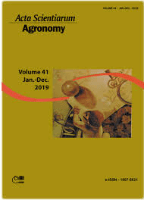
ACTA SCIENTIARUM-AGRONOMY
Unlocking the potential of agriculture through open access.ACTA SCIENTIARUM-AGRONOMY is a prestigious, peer-reviewed journal published by UNIV ESTADUAL MARINGA, PRO-REITORIA PESQUISA POS-GRADUACAO, focusing on advanced research in the field of agronomy and crop science. Since its inception as an Open Access journal in 2007, it has significantly contributed to disseminating high-quality research, allowing unrestricted access to its content for a global audience. Operating from Brazil, the journal holds a notable Q2 category ranking in Agronomy and Crop Science as of 2023, validating its importance within the academic community. The journal’s Scopus ranking positions it in the 49th percentile among Agricultural and Biological Sciences, indicating a robust foundation for impactful research. With a commitment to innovation and scientific excellence, ACTA SCIENTIARUM-AGRONOMY aims to provide researchers, professionals, and students with vital insights that drive forward our understanding of agriculture and its environmental implications.
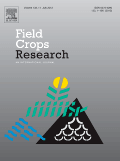
FIELD CROPS RESEARCH
Shaping the Future of Field Crops Through KnowledgeFIELD CROPS RESEARCH is a premier academic journal published by Elsevier, dedicated to advancing knowledge in the fields of Agronomy and Crop Science as well as Soil Science. Now in its 46th year of publication, this esteemed journal has established itself as a leading resource, holding a prestigious Q1 ranking in both the Agronomy and Soil Science categories, with a remarkable blend of rigorous peer-reviewed research and innovative findings. With a Scopus ranking of #27/406 in Agronomy and #20/159 in Soil Science, and a notable 93rd and 87th percentile respectively, FIELD CROPS RESEARCH plays a vital role in informing practices that drive sustainable agriculture and optimize crop production. Although not an open access journal, it remains highly accessible to the global research community and offers critical insights that influence policy and agricultural practices worldwide. Researchers, professionals, and students are encouraged to delve into this journal, as it continues to shape the future of field crop research through impactful studies and comprehensive reviews.

Legume Research
Connecting Science and Sustainability through LegumesLegume Research, published by the AGRICULTURAL RESEARCH COMMUNICATION CENTRE in India, is an essential peer-reviewed journal focusing on advancements in the field of agronomy, crop science, soil science, and plant science. With an ISSN of 0250-5371 and operating since 2008, this journal caters to researchers, agricultural professionals, and students interested in the critical role of legumes in sustainable agriculture and food security. It ranks within the third quartile (Q3) in several prominent categories, reflecting its contribution to the agricultural and biological sciences community—ranking #279 in Agronomy and Crop Science, #113 in Soil Science, and #376 in Plant Science based on Scopus metrics. Although not open access, Legume Research remains a vital resource for those seeking to enhance their knowledge and contribute novel research findings in the ever-evolving discipline of legume cultivation and utilization. With a clear objective to disseminate impactful research, this journal significantly contributes to the global understanding of legumes' ecological, economic, and nutritional importance.

Soil and Water Research
Championing Open Access for a Greener TomorrowSoil and Water Research, an esteemed journal published by the Czech Academy Agricultural Sciences, is dedicated to advancing the fields of Aquatic Science and Soil Science. With a strong commitment to open access since 2006, this journal facilitates the dissemination of high-quality research and fosters global collaboration among researchers, professionals, and students. Operating from the vibrant academic hub of Prague, Czech Republic, it serves as a key resource for those interested in pressing environmental and agricultural challenges. Featuring a robust H-index and ranking in the Q2 category for both Aquatic Science and Soil Science as of 2023, Soil and Water Research occupies a prominent position in Scopus, ensuring that published works reach a wide audience. The journal invites contributions that explore innovative methodologies and provide insights into soil and water management practices, thus playing a critical role in addressing sustainability issues within these interconnected domains. As researchers navigate the complexities of climate change and resource management, Soil and Water Research stands out as a vital tool for informed decision-making and impactful research.